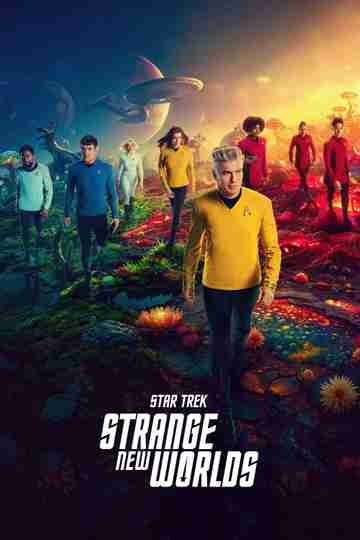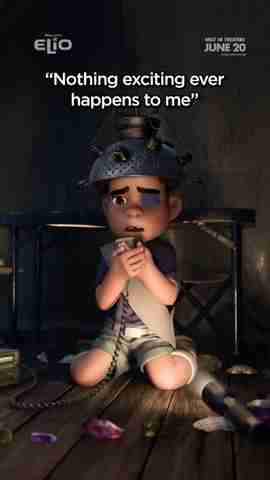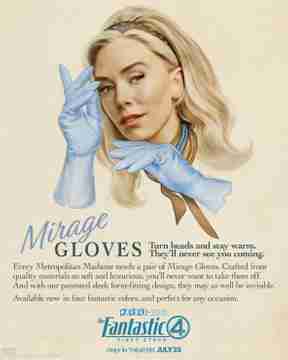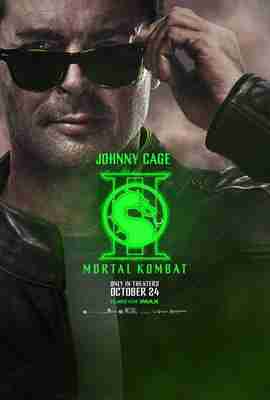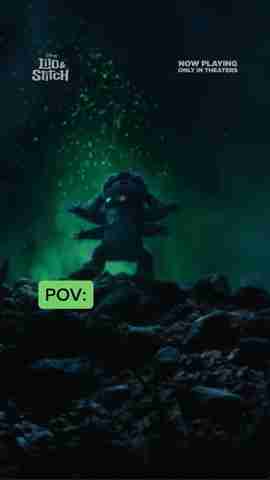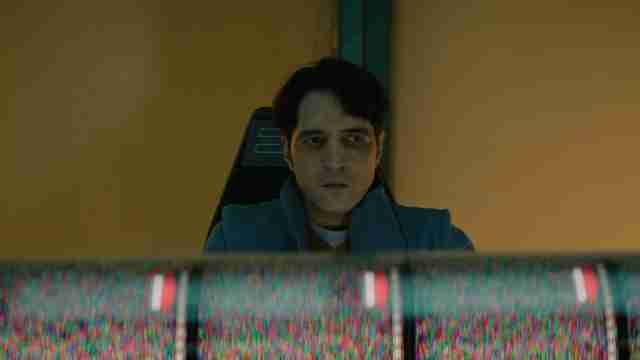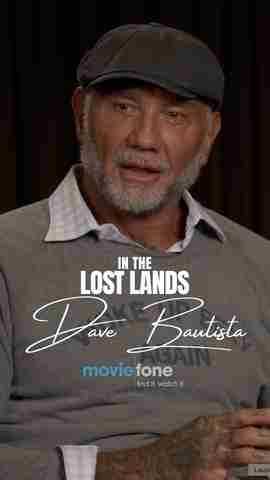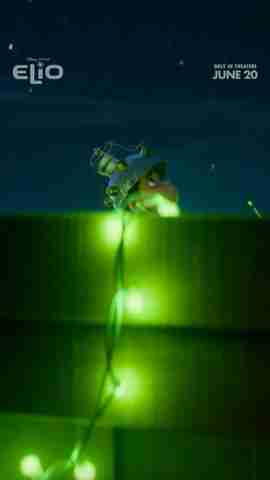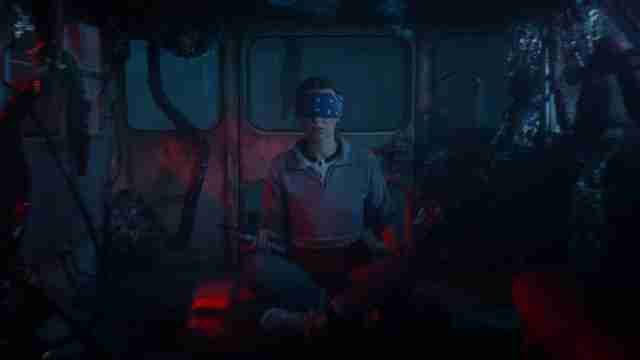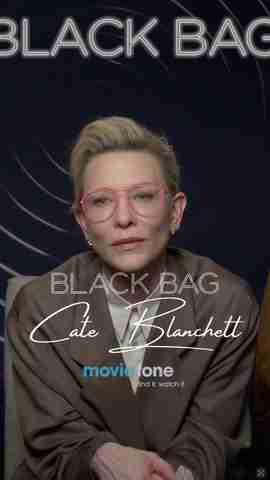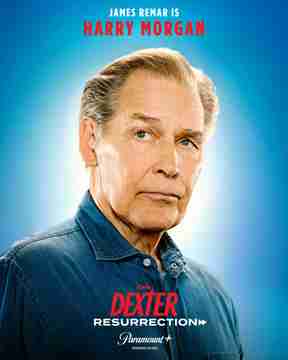2024 Documentaries Episodes
1. The toxic waste from drugs like ecstasy, speed or crystal meth
Whether it’s ecstasy, speed or crystal meth, producing illicit synthetic drugs generates toxic waste. This often ends up in the local environment, posing a threat to humans, wildlife and the land. We look at cases in the Netherlands and Germany.
2. How much influence do the super rich have?
3. The lives of the Amish in the US
4. How artificial light threatens nature
Many animals and plants are threatened by artificial light. Numerous organisms have found their evolutionary niche in the dark of night, and now have to adapt to bright nights. Not all of them succeed.
5. China's growing influence in Europe- Serbia and the New Silk Road
6. Dancing despite war- From war-torn Ukraine to the big ballet stage
7. Personalized nutrition- Could genética tests improve your health and your figure?
8. Mental health and resilience- the secrets of inner strength
9. Transylvania- The heart of Romania
10. The mysterious death of an SS officer: a Nazi true crimen story
11. Behind Asia's cyber slavery
12. Ticking time bombs- What risk do abandoned oil and gas wells pose?
The extraction of gas and oil poses a greater threat than previously thought. Leaks at disused drilling sites can trigger an environmental disaster at any time. If toxic substances escape, human lives are at risk. In many countries, oil and gas companies are legally obliged to seal abandoned wells immediately. However, the implementation and monitoring of these regulations is sporadic. Activists and whistleblowers are constantly trying to draw attention to this abuse.
13. Russia's energy empire: Putin and the rise of Gazprom
14. The dark side of the champagne industry
Champagne: a symbol of glamor and celebration. Tens of thousands of migrant workers head to France every year to harvest grapes in the Champagne region. But some pay a high price to bring this luxury product to market.
15. Cryptocurrencies- The future of money?
For some, cryptocurrencies are a dangerous bubble. For others, they represent the future of money. But what are the actual uses - and risks -- of cryptocurrencies? This documentary explores how crypto is altering global financial architecture.
16. How mass tourism is endangering the Dolomites
Mass tourism in South Tyrol is endangering the unique beauty of the Dolomites, a UNESCO World Heritage Site. The region has just 530,000 inhabitants, while as many as 33 million overnight stays are recorded every year. Too many, according to locals. With the South Tyrolean government's Tourism Development Concept 2030+, the debate over how to deal with the region’s natural heritage has grown heated. What is a World Heritage designation actually worth? Does it really help to protect a unique landscape - or just serve to market it?
17. China's grab for the UN's Food and Agriculture Organization
18. Russia's Gazprom- Corrupt politicians and the greed of the west
19. Meeting death on our own terms
Modern medicine is making it possible to keep people alive for longer and longer. However, hospitals can also earn a lot of money by treating the seriously ill, especially in intensive care units. Intensive care physician Uwe Janssens believes that, when it comes to death and dying, economics often play a key role. Doctors, nurses and the hospital's chaplain meet regularly to discuss ethics: Should a critically ill patient be assisted in dying, or kept alive artificially? What is the aim of therapy? What is the patient's will? What is medically feasible, what makes sense? Even for doctors, decisions at the end of a patient's life are never easy. The film touches on a taboo in Western society. How can people be protected from artificially extended morbid illness, yet still receive the medical help they need and want?
20. Racism in medicine
This documentary hears from people who’ve been turned away or received inadequate care in a medical emergency; from midwives who report on racism in the delivery room; from students who criticize teaching according to white norms; as well as from doctors who reflect on the problem. The film shows just how dangerous conscious or unconscious racism in the healthcare sector can be. Its findings are based on the results of the first representative study on the issue in Germany, published in November 2023 by the German Centre for Integration and Migration Research.
21. Ayahuasca boom in Brazil
22. Barbie: The world's greatest influencer?
She’s available in all skin colors, she’s diverse and inclusive. Created by businesswoman Ruth Handler, unveiled in New York in 1959, Barbie’s long been a money-maker. With millions of followers on Instagram, she’s now an influencer, too. The documentary dives into the world of Barbie content creators, meets the most famous collector (who owns 18,500 dolls), and speaks to fans and feminists. Barbie: the first doll with her own career. Still, she’s an object of love and hate. More than any other toy.
23. Extreme climate research- On the road in the icefields of Patagonia
Patagonia's icefields are very difficult to access. As a result, they remain largely unexplored by climate researchers. Now, a scientist and two extreme mountaineers are venturing into this hard-to-reach area, in search of new data for climate research.
24. Can algae save the world?
The research project called "Waste to value”, Kaiserslautern University of Applied Sciences biologist Michael Lakatos and his team are investigating the potential uses of microalgae. Some species form limestone, which could be used to make bio-cement - thereby reducing CO₂. Other forms of algae could serve as a biologically-based plastic substitute. Yet others could produce edible dyes - using sunlight and CO₂. The researchers are traveling the world in search of especially talented algae and bacteria. The filmmakers accompany the team members for almost a year - even following them into a Spanish cave used to emulate life on Mars. After all, algae could have many potential uses in space, including as a foodstuff for astronauts.
25. New quantum computers- Potential and pitfalls
A Swiss start-up that produces artificial lungs is looking towards quantum algorithms to become more efficient and, for example, help find a cure for cancer and rendering experiments on animals redundant. A private investor has brought these goals one step closer by allowing Swiss start-ups to use quantum computers commercially. The technology is still considered to be at the beginning of its development curve, science does not yet know its full capabilities. Big players such as Google and IBM are in competition to create ever newer and faster quantum computers. This film opens a window into the world of supercomputers, and explores how their potential and their dangers seem to exist side by side.
26. Pyramids, dark matter & the Big Bang theory
27. AI supremacy: The artificial intelligence battle between China, USA and Europe
The documentary follows key figures from the tech industry, science and politics who are working on artificial intelligence around the globe. They are tasked with making far-reaching decisions within a very short space of time. How can the technology’s potential be harnessed, while preventing a science fiction dystopia? The potential benefits of the currently emerging super-infrastructure are as limitless as its existential dangers. The latter include disinformation and election manipulation, as well as new forms of warfare and surveillance.
28. The Mississippi - A journey through the heart of America
29. NATO - The largest military alliance in the world
30. Colonial roots of the genocide in Rwanda
31. A Holocaust survivor returns - Margot Friedländer in Germany
32. Mars - Life on the Red Planet?
The new robot NASA sent to Mars is called "Perseverance". Its mission? To search for evidence of past life on the Red Planet - an important and ambitious endeavor. It took years to design the space probe and its small helicopter drone, called "Ingenuity". This documentary follows the rover's development, right up to its landing in the Jezero Crater on February 18, 2021.
33. Burnout - When does work start feeling pointless?
Superfluous meetings, endless paperwork and incompetent managers - sound familiar? Jobs that entail a steady stream of seemingly pointless demands can damage our health in the long-term. This film takes a humorous look at how we waste potentially valuable time in the workplace.
34. Illegal leather - How the car industry is threatening the rainforest
Brazil’s tannery industry exports products worth 1.5 billion Euros every year. Cattle meat and hides are a huge economic driver. But this business often involves the illegal destruction of the rainforest for grazing land. With footage secretly filmed in abattoirs and interviews with insiders the team retraces the production steps of this illegal leather right to its source. From the Brazilian rainforest, via shady middlemen to German car dealerships offering the latest models by BMW, Mercedes & Co. - complete with their luxurious leather interiors. The film embarks on a journalistic quest for clues that turns into an economic crime thriller. After all, this isn’t an isolated case, it’s systematic environmental exploitation. Despite the many glossy brochures touting the carmakers’ sustainability credentials, these complex supply chains are often opaque - keeping their impact on people and the environment in the dark.
35. The International Space Station: a unique space project
This documentary explores the singular historical situation that made the construction of the ISS possible and hears firsthand from crew members from various nations. It sheds light on the challenges that ISS crews have faced over the years, such as the fact that, for a long time, female astronauts were unable to carry out space walks because there were no suitable space suits available for women. Nonetheless, the International Space Station is proof that nations can work together towards incredible common goals - not for nothing has it been called "humankind’s most valuable machine”. But the end fast approaching. The project was supposed to end in 2024, until the US government agreed to continue operating the ISS until 2030. In 2031, the space station is due to be brought back to Earth using a controlled process of de-orbiting.
36. Women as spoils of war at the end of World War Two
In early 1945, at least 860,000 women and girls in Germany were sexually abused by Allied soldiers. The victims, and the children they bore after being raped, suffer trauma to this day. Many remained silent throughout their lives and took their stories to their graves. The documentary hears the stories of some of these victims, talks to their children and grandchildren, as well as historians to reveal how the trauma has affected them throughout their lives. The documentary also shows how important it is to confront the taboo head on: After all, sexual violence against women and girls is still very much part of modern warfare.
37. Between the desert and the Pacific Ocean
There are men on this planet who challenge death every day to feed their families. Between the desert and the Pacific Ocean, in the region of Huarmey in Peru, stand vertiginous cliffs. Men like Purunga must overcome them.
38. Birds - Survivalists with special powers
Almost of a third of all birds in the US have disappeared since 1970. That’s just under three billion animals. In Europe, the number has been decimated by around 25 per cent. Climate change and the destruction of natural habitats pose the greatest challenges. Conservation efforts are more urgent than ever.
39. How car tires drive deforestation
Rainforests are sacrificed to provide the rubber used in tires, even though alternatives exist. 70% of the global rubber harvest goes to the tire industry, which must now meet new supply chain rules approved by the European Parliament in April 2024. The rules are designed to ensure due diligence and corporate accountability. Once the law takes effect, manufacturers in the EU will need to show their tires do not contain natural rubber from deforested land. This certification process poses a problem for producers. Most natural rubber is produced in Asia. The supply chains from rubber farmers through various intermediaries to Europe have, however, been largely nontransparent to date. Companies are therefore exploring alternative materials and methods. In addition, discarded old tires could be retreaded, recycled, and put back on the market - instead of ending up on a landfill site. Is the industry having a genuine change of heart, or are these merely examples of greenwashing?
40. Floods, heavy rain, extreme weather - Why we need to build differently
Billions of people in cities around the world are affected by climate change. Sustainable urban planning can help reduce risks and improve life in urban centers.
41. What is life like without smells?
Since Covid-19 and the symptoms of loss of smell and taste, many people have begun to realize just how important smell is in our lives. Our sense of smell is the oldest sense we have. Not only the enjoyment of our food, but also our memories, emotions and social interactions are influenced by it. The loss of the sense of smell, or ‘anosmia’, significantly impairs people's experience of the world. In this documentary, people talk about their lives without smell. But what if you've never been able to smell before? Lauren Ramoser only noticed at the age of 11 in chemistry class that the strong-smelling acids seemed to smell "corrosive" to her classmates, but that she didn't notice anything herself. How does this affect a person’s life?
42. India's new generation between luxury and poverty
India, a nation on the verge of becoming a superpower? The country has overtaken China and is now the world’s most populous nation. The average age is 28. What dreams and what opportunities for advancement does this generation in India have today?
43. European migration? How a continent is sealing itself off
There’s hardly a more divisive topic in Europe than the issue of immigration. When the refugee crisis began in 2015, the EU welcomed many with open arms. Now, tightened borders have become the norm.
44. Ozempic - What’s the truth behind the hype?
The hype is enormous: A new weight-loss drug is being aggressively marketed on social media - promising patients a quick fix for obesity. But what’s the truth behind the hype?
45. Melting wetlands - How can nature slow down climate change?
Peatlands and wetlands play an important role in global warming because they influence the greenhouse gas cycle. But not all bogs are the same. Some bind carbon, while others release it into the atmosphere in the form of carbon dioxide and methane emissions. The film follows the work of two research teams investigating the influence of moors and swamps on the climate. Greenhouse gases escape when permafrost moors melt. But swamp and mire areas that have been thrown out of balance, for example by plantation farming for the production of palm oil, can actually accelerate climate change. The documentary explains what happens when carbon escapes from swamp and moorland areas into the atmosphere and how nature's potential can be used to slow down climate change.
46. Isolation and dementia - Why we should protect our ears
If you’re young, you don’t usually do enough to protect your hearing. But more than a billion youngsters are at risk of hearing loss worldwide. People often turn to assistive devices when it’s already too late. Hearing loss can result in isolation and accelerate the onset of dementia. We introduce young people suffering from hearing loss as a result of listening to music too loudly for too long, look at everyday situations that put extreme strain on our hearing and present new solutions from the hearing aid industry. In the making of this film, directors Duki Dror and Jens Strohschnieder revisit scenes where the 7 October attack took place and speak to survivors, journalists and security experts.
47. Raid on the Atlantic - Overfishing and exploitation of the sea
West African waters once had some of the richest fish stocks in the world. Today they are severely depleted. Fishermen in Senegal fear for their livelihoods. Europeans, Chinese, Russians and Turks have overfished the waters.
48. Nuclear fusion's hope - The dream of endless clean energy
Could nuclear fusion generate an infinite amount of clean energy? In contrast to nuclear fission, nuclear fusion looks favorable when it comes to environmental and safety concerns. Could nuclear fusion be the solution to our environmental problems? The film explains how nuclear fusion works and what role it could play in the European energy landscape, the challenges involved, the difference between fission and fusion and whether this just might be the solution to humanity's hunger for energy.
49. America’s right-wing radicals - US veterans against democracy
On 6 January 2021, hundreds of Donald Trump supporters stormed the Capitol in Washington. Five people were killed and many injured. Some 15 per cent of those involved were former members of the US military or police. The US-American filmmaker Charlie Sadoff and his co-writer and producer Kenneth Harbaugh both used to be in the military, something that allowed them to delve deep into the veterans’ world. Through them, they gained access to violent rightwing extremist circles in America, including anti-government militias such as the Proud Boys, the Three Percenters and the Oath Keepers. These groups - organized and led by well-educated, highly motivated military veterans - represent the greatest threat to democracy in the United States today. The documentary examines the complexity of this development, tracing it back to its historical roots.
50. Turning vapor into drinking water
Turning vapor into drinking water: a bizarre response to the impact of climate change? Or a stroke of genius? It’s hoped that the cloud catchers - nets that fish water out of the air - will provide a solution to water shortages worldwide. But how does it work?
51. Nicaragua - 45 years after the revolution, a return to dictatorship
This is documentary film about the eventful period following the victory of the Sandinista revolution in Nicaragua and the commitment of thousands of West German supporters who traveled to Nicaragua in the 1980s. What has become of their dreams, wishes and hopes 45 years later?
52. Toxic and tenacious - How "forever chemicals” are damaging our health
Coated pans, waterproof clothing, refrigerants for air conditioning systems. All these everyday items contain PFAS. This group of chemical compounds makes life more convenient. But PFAS compounds are also highly controversial because they are both toxic and long-lasting. Known as "perpetual chemicals”, PFAS accumulate in the environment and also enter the human body. The film examines the question of whether PFAS should be banned because they threaten our health. Or should they continue to be used because they are so practical and virtually irreplaceable in our everyday lives?
53. Building in harmony with nature
Building in harmony with nature, using renewable materials from the region. Sustainable building is still an adventure. But in future, it’s likely to be necessary. The future lies in understanding a house as a place where material is stored, according to construction experts committed to sustainable construction. Building within existing buildings is their top priority. It saves the most CO2 and conserves the most resources - that approach is better than any new building, no matter how ecological. They’re calling for a change in regulations to bring standards for renovated houses in line with the realities. Because as long as it’s easier and cheaper to demolish and rebuild from scratch, only a few builders will be enthusiastic about conversion.
54. Protecting the climate
Can the climate still be saved? Scientists like oceanologist Mojib Latif are disillusioned. Neither the warnings from climate researchers nor public protests have prompted sufficient action from politicians and big business interests. Why? This question is the subject of this film. One factor is the sluggish political action of governments in almost every country in the world -- despite numerous climate protection conferences. The lack of political action can often be traced to large fossil fuel companies, which have prevented the implementation of effective environmental and climate protection measures, fearing for their profit margins. The film shows which hurdles still need to be overcome -- economic and political, as well as very human ones - and how science can help.
55. Mental health and body image
For years, Sofia suffered from eating disorders and depression. By talking openly about the issue, she hopes to help others. Like many young people, 22-year-old Sofia struggled with body dysmorphia for years. She started using her Instagram account, @mechoosinglife, to raise public awareness of mental illness, and provide support to others affected by body dysmorphia. The move marked the beginning of her ongoing healing process, and her conscious decision to choose life. [Warning: This documentary addresses the topic of suicide. If you or someone you know is suffering from serious emotional strain or suicidal thoughts, do not hesitate to seek professional help. You can find information on where to find such help, no matter where you live in the world, on this website: https://www.befrienders.org/ ]
56. Trophy hunting
Elephants, antelopes, lions. Rich people kill animals threatened with extinction, then hang them on their walls as trophies. On the face of it, trophy hunting seems morally reprehensible. But could it be more complicated? Trophy hunting is big business. Germany is the second most important country in the world when it comes to trophy hunting. There is no other country in Europe where so many hunters set off every year to shoot animals abroad. Why is this allowed and who benefits from it? Is it just a bloody hobby, or might it contribute to species conservation?
57. How the Nazis concealed their atrocities
The Nazis meticulously planned and documented their acts of mass murder. They were just as meticulous when it came to covering their tracks. Their systematic, cruel methods are a chapter of war history that’s still largely unknown. The documentary film accompanies the French organization Yahad-In Unum as it conducts research in Ukraine. In the Lviv region, researchers attempt to identify the locations of mass shootings and find any eyewitnesses who might still be alive and able to recount what they saw.
58. Endometriosis
190 million women around the world suffer from endometriosis, a chronic disease of the abdomen. For a long time, medicine didn’t take these women’s complaints seriously. But now, the taboo issue is finding a wider audience. Women are breaking their silence. It takes an average of seven years to get a diagnosis - a long time for women to be left suffering. Their periods are extremely painful, but the pain can also come at any time during the menstrual cycle, sometimes affecting the entire body. This is often accompanied by heavy menstrual bleeding, bowel problems, exhaustion, pain during sex and sometimes problems conceiving. The pain is caused by uterus-like cells that colonize areas outside the uterus, for example the ovaries, intestine or peritoneum.
59. Varanasi - Facing death without fear
60. Urban rats
Rats are seen as transmitters of disease and are hated in the West. But to this day, we don’t know very much about this feared animal. Science is only just beginning to properly delve into the world of rats and "rehabilitate" their image.
61. Butchers fighting cheap meat
Mark Junglas is disgusted by conventional factory farming. The trained butcher wants to do better. Eating meat is fine, he says. But only if the animals have led a good, species-appropriate life -- and experience a stress-free death. But getting the farm out of the red while holding his own against the influx of cheap meat is no easy task. Even though animal welfare is very much in vogue, few people are prepared to pay more for organic meat.
62. Will artificial intelligence save us or kill us?
Will artificial intelligence make life better for humans or lead to our downfall? As developers race toward implementing AI in every aspect of our lives, it is already showing promise in areas like medicine. But what if it is used for nefarious purposes? What are the promises and perils of AI? And who gets to decide how it will be used?
63. The fight against exploitation of migrant workers in Italy
Yvan Sagnet has been campaigning against the exploitation of migrant workers in Italy for years. His organization No Cap works to ensure fair conditions for laborers in the agricultural industry.
64. Smart insects
The latest research shows we’ve long underestimated the intelligence of insects. Bumblebees, for example, succeed at behavioral tests also passed by intelligent crows. They use tools to reach nectar in an artificial flower. The insect world is much more complex than previously thought. One reason is that any species with a wide range of diverse individuals can better adapt to climate changes - an evolutionary advantage for survival.
65. Climate change or climate hoax? Skeptics and activists
Climate change is real, and it is dangerous. Some people are actively trying to stop it. Others deny or intensify it - or suppress information. Most don’t bother at all and continue to contribute to global warming through their lifestyle.
66. How climate change threatens coffee production
Climate change could halve the amount of land suitable for coffee production by 2050. In a bid to save one of the world’s most popular drinks, many people are busy experimenting with more resilient coffee varieties and sustainable growing methods.
67. Trauma in the Middle East: The terror of Hamas and Israel's war in Gaza
How was the attack on the Israeli state prepared? How was it even possible? To mark the first anniversary of the Hamas attack, the documentary film analyzes the failures of intelligence services, politics and the army. Could the catastrophe have been prevented? What motivated Hamas to carry out the attack? And what was Israel’s response - with which consequences? In the making of this film, directors Duki Dror and Jens Strohschnieder revisit scenes where the 7 October attack took place and speak to survivors, journalists and security experts.
68. How can ships become cleaner?
Soot, particle pollution and heavy fuel oil: freighters and cruise liners are real climate killers. It’s high time for a change of course on the seas. The film shows how both innovations and tried-and-tested ideas can make shipping cleaner. With countless innovations and strict regulations, Norway is leading the way in the transition to emission-free shipping. The Scandinavians are focusing on electric motors and hybrid technologies. Climate change is already being felt in the Norwegian Arctic - another reason why the government is getting serious. From 2026, only emission-free ships will be allowed to sail in Norway's most beautiful fjords. And climate-friendly tourist ships are already sailing along the traditional postal ship route.
69. Tel Aviv and October 7
The Hamas terror attack of 7 October 2023 has had profound consequences in Israel, Gaza and beyond. This film asks how those in Tel Aviv have reacted to the subsequent war, and what they expect the future will bring.
70. How pandemics, wars and disasters jeopardize global trade
Pandemics, wars and natural disasters jeopardize trade and supply chain security. Even in the best of times, international supply chains often lack the necessary transparency, especially when it comes to poor working and environmental conditions.
71. Is prosperity without economic growth possible?
Critics of growth want to bring the economy into harmony with the environment and social well-being. They see a world that functions without constantly wanting more. But is that realistic?
72. Hiding and surviving - Growing up under National Socialism
"Everyone who survived has a story that you simply can't believe.” Charlotte Knobloch survived the Holocaust - because farmer's wife Kreszentia Hummel passed her off as her own, illegitimate child and kept her hidden on her farm. Now Charlotte Knobloch, she’s President of the Jewish Community of Munich and Upper Bavaria and former President of the Central Council of Jews in Germany. In this film, she tells viewers about her own life - and a past that is full of fear and loss. Despite all her devastating experiences, she would go on to become one of the most important figures representing Jewish life in the German-speaking world. She has dedicated her life to the fight for peace, equality and democracy.
73. Europe’s deadly migration policy
The European Union is investing money in equipping and training North African security forces with the aim of stopping migrants to Europe before they reach the Mediterranean coast. However, this approach is causing enormous human suffering that has so far gone largely unnoticed by the European public. In this film, an international research team documents the systematic arrest and abduction of migrants by North African security forces co-financed by the EU. The film shows how thousands of migrants are transported to remote areas and left to their fate without protection, while EU representatives continue to conclude new migration agreements with North African states.
74. How heatwaves impact our lives
Heatwaves. They are occurring more and more frequently, lasting longer and becoming more intense. In Europe, temperature records are constantly being broken. One question has scientists particularly concerned: How hot will it get in the future? What adaptation options are available to us in the face of the new heat reality?
75. What are the consequences of Germany's ban on chick killing?
Roosters bring little profit on the poultry market. They lay no eggs and produce little meat. So, many German hatcheries sell millions of chicks abroad. But what are conditions like there? Animal welfare activists have evidence of serious abuses. The film follows the trail from the hatching of the chicks in a German hatchery to rearing in Poland and sale to Ghana. The research shows: The ban on chick killing in Germany shifts the problems abroad and animal welfare is usually ignored. The law seems well-intentioned but poorly thought out.
76. Teaching in the isolated Venezuelan Andes
Rodolfo Dugarte Sanchez has a dream. The young teacher from the Venezuelan Andes wants the children of the remote village of Las Plumas to learn to read and write. He regularly walks almost four hours to teach them. Rodolfo had just started building a school when the pandemic hit. He’s made no progress since. The crisis-ridden state of Venezuela is not supporting him. The provincial government in Mérida also seems indifferent to the children in the mountains. Now, the pandemic is over and Rodolfo wants to resume his project. Will he succeed in building the children of Las Plumas a school?
77. Pakistan: Pashtun kids fight for their education
In Pakistan, every third child is out of school – and the situation is dire in particular for children belonging to the ethnic group of the Pashtuns. Poverty, corruption, terrorist attacks, and traditions that sometimes oppose to secular education all get in the way of these kids. And yet, some don’t give up. We meet Jalal, who’s school classes take place in a tent in the mountains – and we follow his and his father's fight for better education.
78. Siberia: Gazprom, a pipeline and the last nomads
The Yamal Peninsula in the Arctic is the heart of the Russian energy empire. It is home to the world's largest natural gas reserves. But this is also where the migration routes of the Nenets run. Is their habitat being destroyed?
79. The missing Van Gogh
80. Indonesia’s environmental disasters
Indonesia is grappling with grave ecological problems. While pollution caused by plastic waste threatens ecosystems, Jakarta is sinking into the sea. The city is quite literally going under. Climate activists and authorities are doing what they can to halt the process.
81. Europe's shark trade
Europe is the largest exporter of shark meat and fins - in an industry worth several billion euros per year. The tons of shark meat found on sale by marine biologist Lukas Müller are mainly from young animals not yet old enough to have reproduced. Activists want an EU-wide ban on the shark fin trade. But for many people in Vigo, fishing is their livelihood. Can a balance be found between economic interests and the protection of our natural world?
82. Battle for the Amazon
In the Amazon, the Yanomami staunchly oppose the destruction of their habitat. Since the 1970s, illegal gold mining in particular has posed a threat and destroyed the indigenous people's habitat. The situation was further exacerbated when former Brazilian President Bolsonaro declared his intention to legalize the extraction of resources in Yanomami territory. Their shaman and spokesperson, Davi Kopenawa, undertakes a world tour to give a face and a voice to their campaign of resistance. He’s certain that if the shamans stop dancing and life in the rainforest is thrown out of balance, the sky will fall and crush everything beneath it - not just the Yanomami. But can he convince those who are running the country?
83. Smoking - Anatomy of an addiction industry
The World Health Organization says smoking results in the death of eight million people every year. That’s one reason why you’ll now often hear tobacco companies promoting the switch to e-cigarettes, with claims that these are less harmful to our health. It’s first and foremost young people who believe the industry’s promises, thereby taking the first step on the road to addiction. After all, nicotine is an addictive substance. And although it may taste better than tobacco, puffing on a vape is still going to get you hooked in precisely the same way as smoking a regular cigarette. The film investigates the cynicism of an industry that not only accepts this, but also deliberately aims for it. Big Nicotine - Anatomy of an Addiction Industry /TEMPS PRESENT / Laurent Burkhalter & Philippe Mach / 2024 / RTS Radio television Suisse
84. Lost on the run between Belarus and Poland
More and more people are taking the migratory route through Belarus - and disappearing without a trace. Relatives from their home countries, such as Iraq, Syria and Egypt, are looking for them. Polish volunteers offer their support in what is often a distressing endeavor.
85. Cyberbullies - Online hate unmasked
For the first time, a documentary film penetrates deep into the most extreme levels of online hate. Cyberbullies engage in a series of campaigns intended to provoke an intense emotional reaction from the victim. The film explores some of their most perfidious methods. [Warning: This documentary addresses the topic of suicide. If you or someone you know is suffering from serious emotional strain or suicidal thoughts, do not hesitate to seek professional help. You can find information on where to find such help, no matter where you live in the world, on this website: https://www.befrienders.org/ ]
86. The dark side of mass-produced fashion jewelry from China
Cheap fashion jewelry is a booming business, but its shine hides a dark side. Workers endure starvation wages, and toxic materials in the jewelry endanger customers' health. This film uncovers the origins and production of these items.
87. Collecting, storing and preserving
We humans like to preserve everything, whether we’ve collected or created it. We want to preserve objects, memories and even microorganisms. How can we preserve our current flood of knowledge, data and objects for future generations? What is important, and what can go? The better storage options become, the more difficult it is to answer this question.
88. Fake steak - Future-proof food and lab-grown meat
Industrial livestock farming is responsible for around 15 percent of global greenhouse gas emissions. It also requires huge amounts of land and water and is thought to be contributing to the rise in antibiotic-resistant infections in humans. This is why more and more scientists and entrepreneurs are conducting research on alternatives to conventional meat production.







